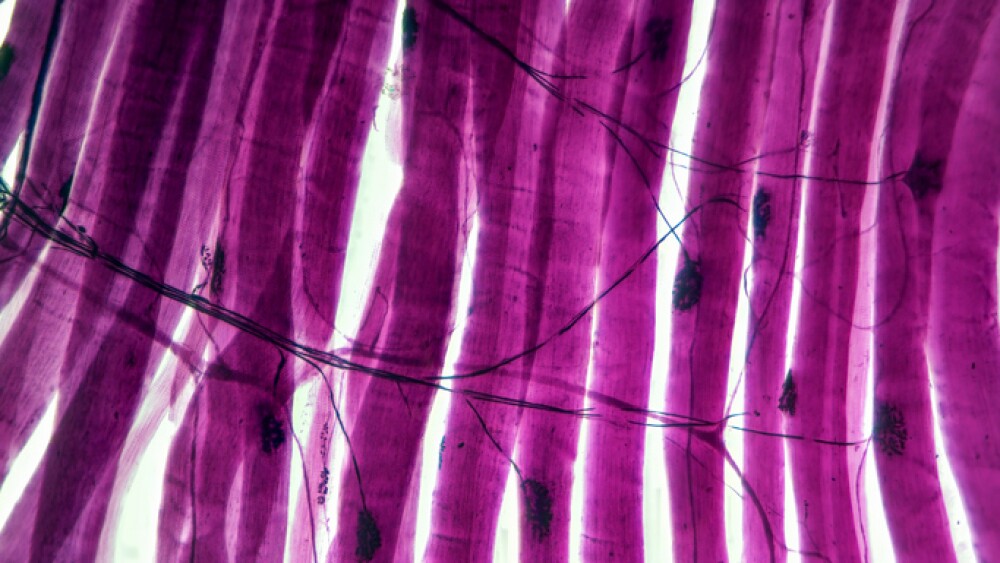Golden, CO, Feb. 24, 2025 (GLOBE NEWSWIRE) -- Ignite Proteomics LLC, a subsidiary of IMAC Holdings, Inc. (Nasdaq: BACK), today announced the presentation of new data demonstrating that MHC-II protein expression is a superior predictor of response to pembrolizumab (Keytruda®) compared to PD-L1 at the upcoming National Comprehensive Cancer Network (NCCN) Annual Conference. The study, conducted with I-SPY 2 clinical trial results, evaluated five different PD-L1 antibodies – including the one most commonly used as a companion diagnostic – yet only MHC-II expression showed a statistically significant correlation with patient outcomes.
“Although PD-L1 testing is standard in some cases, many patients end up on Keytruda without really benefiting,” said Faith Zaslavsky, CEO of Ignite Proteomics and IMAC Holdings. “Our analysis shows that measuring MHC-II levels does a better job of predicting who responds. For cancers types and stages with no biomarker testing at all, MHC-II would improve care by guiding therapy decisions more precisely.”
I-SPY 2 Trial Context
I-SPY 2 is a multicenter, adaptive platform trial primarily focused on high-risk stage II and III breast cancer patients undergoing neoadjuvant treatment. The design rapidly evaluates new agents – such as checkpoint inhibitors – based on interim outcomes like pathologic complete response. Data from I-SPY 2 often guides further clinical development in breast cancer, underscoring the significance of MHC-II outperforming PD-L1 measurements in this well-regarded research setting.
Key Findings
- Five PD-L1 Antibodies Tested: Only MHC-II correlated with response to pembrolizumab, whereas none of the five PD-L1 measurements reached statistical significance.
- Improved Patient Outcomes: Patients with higher MHC-II protein levels demonstrated nearly double the response rate compared to the unselected patient cohort.
- Unmet Need in Some Indications: For some cancers and settings where no biomarker testing is used, a large fraction of patients do not respond to checkpoint inhibitors. This study suggests MHC-II testing can enrich for those more likely to benefit.
About Ignite Proteomics
Ignite Proteomics, a subsidiary of IMAC Holdings (Nasdaq: BACK), leverages its unique, multi-analyte proteomic assay to help oncologists pinpoint the most effective targeted therapies for each patient. Operating under a CLIA-certified and CAP-accredited laboratory, Ignite goes beyond single-gene tests by evaluating entire protein pathways in cancer cells. The complex and interrelated output of the multi-analyte assay, driven by a proprietary, rules-based artificial intelligence engine, will result in significant advancements in matching cancer patients with the right medicine at the right time. Initially focused on advanced breast cancer, Ignite is rapidly expanding to other solid tumors and therapies whose effectiveness depends on protein function. By mapping which proteins are truly “active,” Ignite’s approach addresses a critical gap left by conventional genomic testing, ultimately improving treatment outcomes and reducing unnecessary costs.
Forward-Looking Statements
This press release may contain forward-looking statements, including those regarding the performance of Ignite’s tests and potential increases in clinical adoption. Actual results may differ materially from these statements due to various uncertainties. The Company disclaims any obligation to update forward-looking statements unless legally required.
Non-Scientific Summary
Many doctors use “PD-L1” tests to decide who should get Keytruda, but those tests may not always predict who will respond. In fact, some cancers do not use any test, even though a high number of patients don’t benefit. A new study analyzing data from the I-SPY 2 trial shows that measuring a protein called MHC-II can better identify which breast cancer patients truly respond to Keytruda, leading to more targeted and potentially more successful treatment. The data will be presented at the NCCN national conference.
Contact Information
Investors@imacholdings.com
www.igniteproteomics.com





